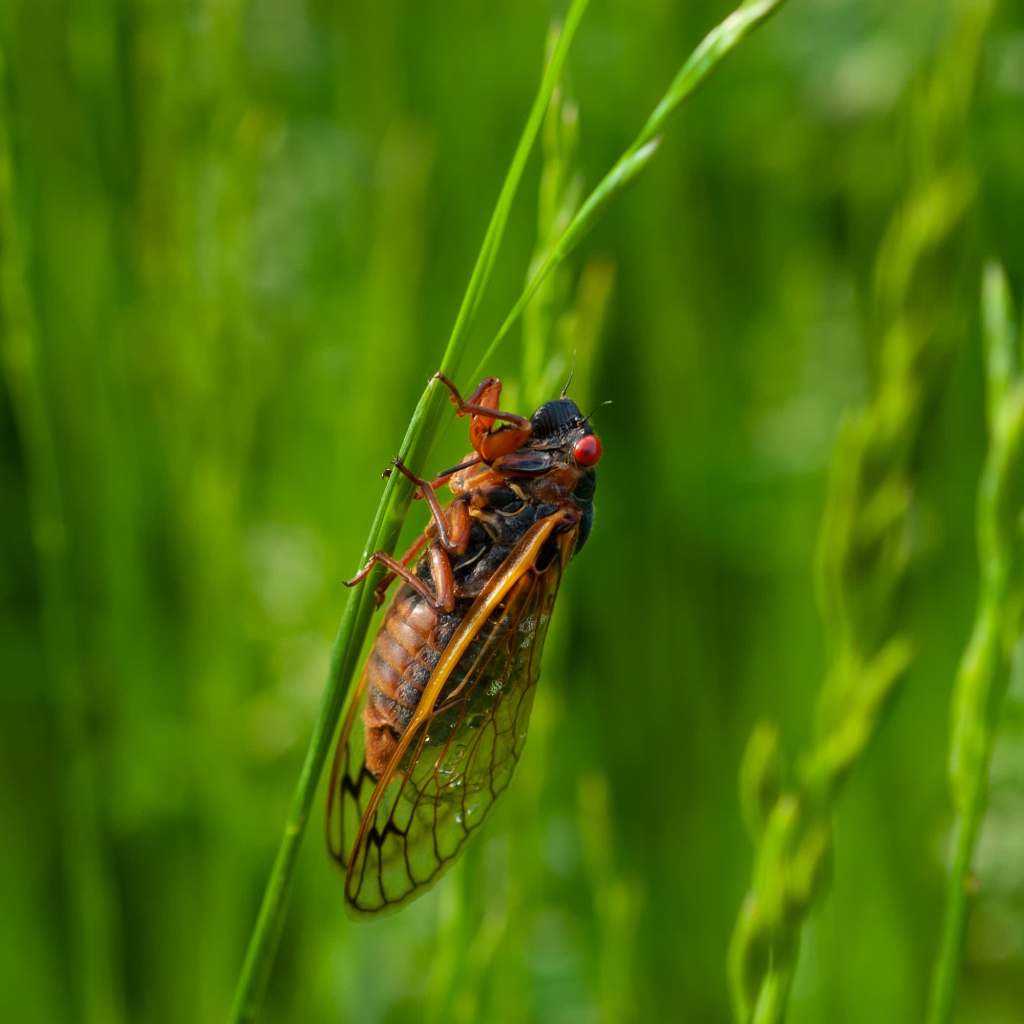From the dirt in your backyard to a classy charcuterie board made just for them, dogs will eat just about anything. But what about cicadas? As the Brood X cicadas come out from their 17-year slumber this summer, your dog might mistake them for a crunchy treat. If you didn’t have a pup during the last brood’s emergence, you might be wondering if it’s safe for your dog to snack on them. According to experts, it’s not.
Crystal Doyle, DVM, DACVIM, the lead veterinarian at Advanced Internal Medicine For Pets in Cincinnati, said that cicadas are not toxic, but their exoskeletons may cause problems for your dog. “If they eat just one or two, it’s not going to be a problem at all,” Dr. Doyle explained. “But if they’re a really small dog and they eat maybe five or 10, or if it’s a big dog and they eat maybe 40 or 50, [their gastrointestinal tract] could potentially get obstructed and not be able to pass food. So, if you saw vomiting or they weren’t eating afterwards, you would want to take them to your vet or an emergency hospital.”
The American Kennel Club also lists choking, allergic reaction, and consumption of unhealthy pesticides as possible side effects your dog may have after eating a cicada. But, as long as your dog doesn’t overindulge on the insects, it should be fine. For owners of compulsive eaters, Dr. Doyle suggested using a basket muzzle when your dog goes outside, or adjusting your walking schedule to avoid cicada peak hours. “Cicadas are most active throughout the day. When it becomes evening or early morning hours, they’re much less active,” Dr. Doyle said. “Stay away from heavily wooded areas [since] cicadas like to eat and live around trees.”
If your dog does eat too many cicadas, don’t freak out. Dr. Doyle said her clinic only handles cicada cases a handful of times a week, and it’s very rare for dogs to need surgery. Unless your dog vomits multiple times or has an allergic reaction, just let their stomach settle down, and after a few hours, they should be ready for that charcuterie board.

